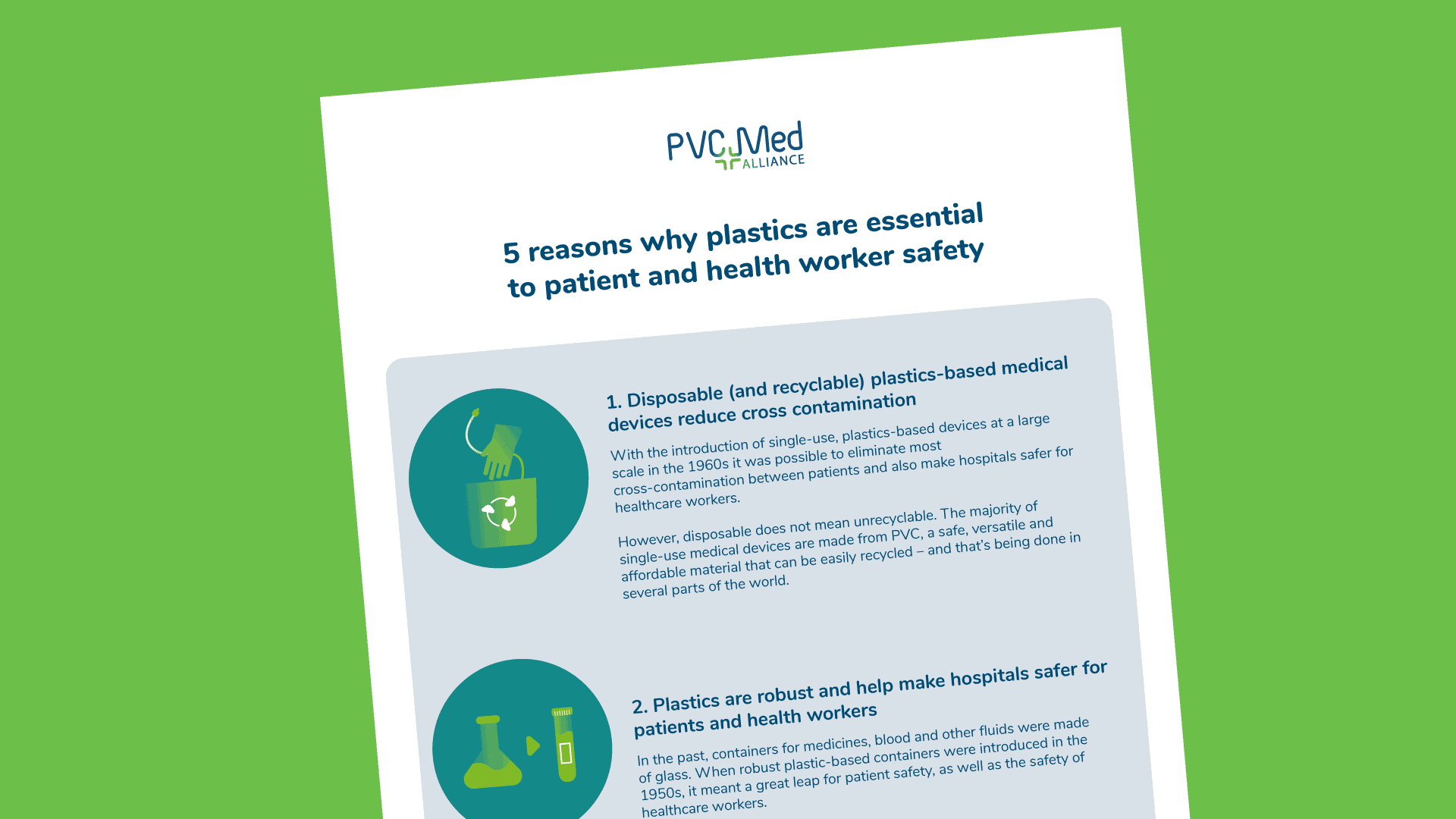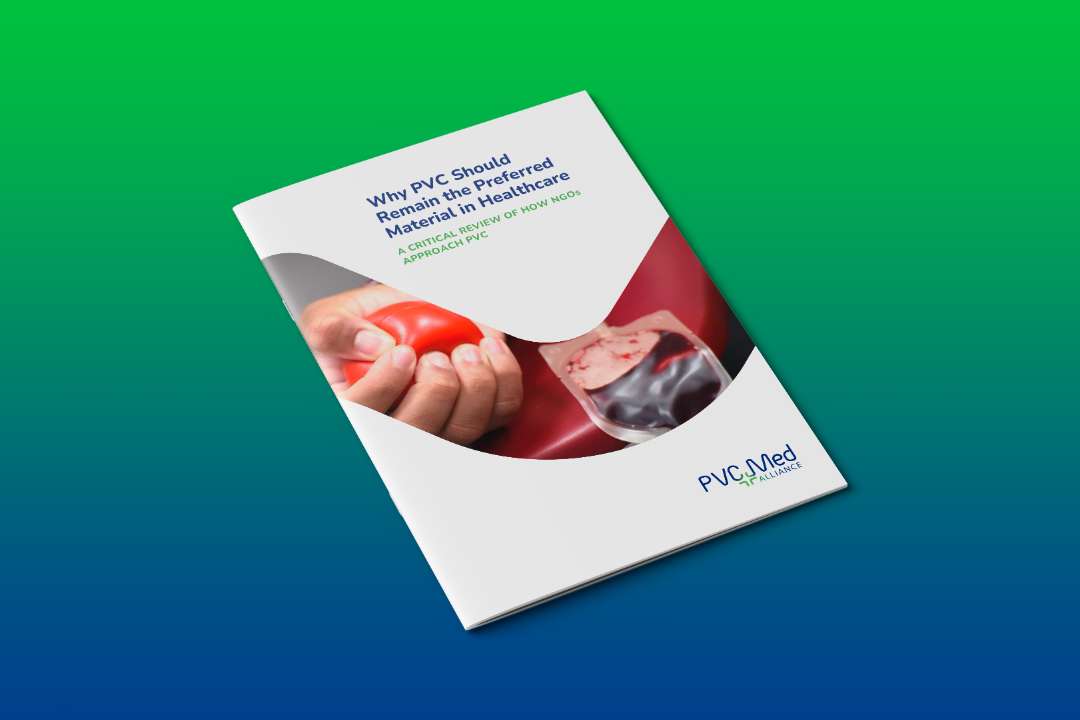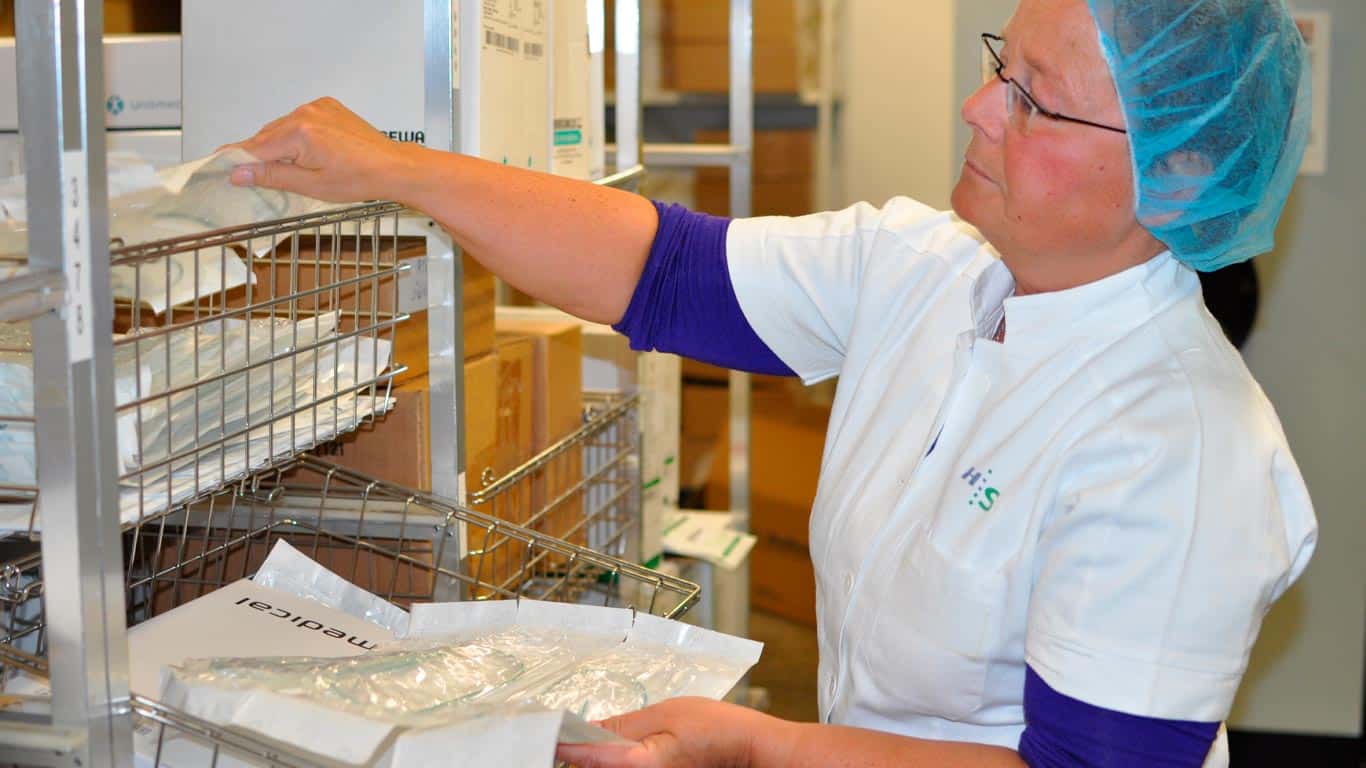
Recyclable PVC to remain polymer of choice for medical devices
15/09/2021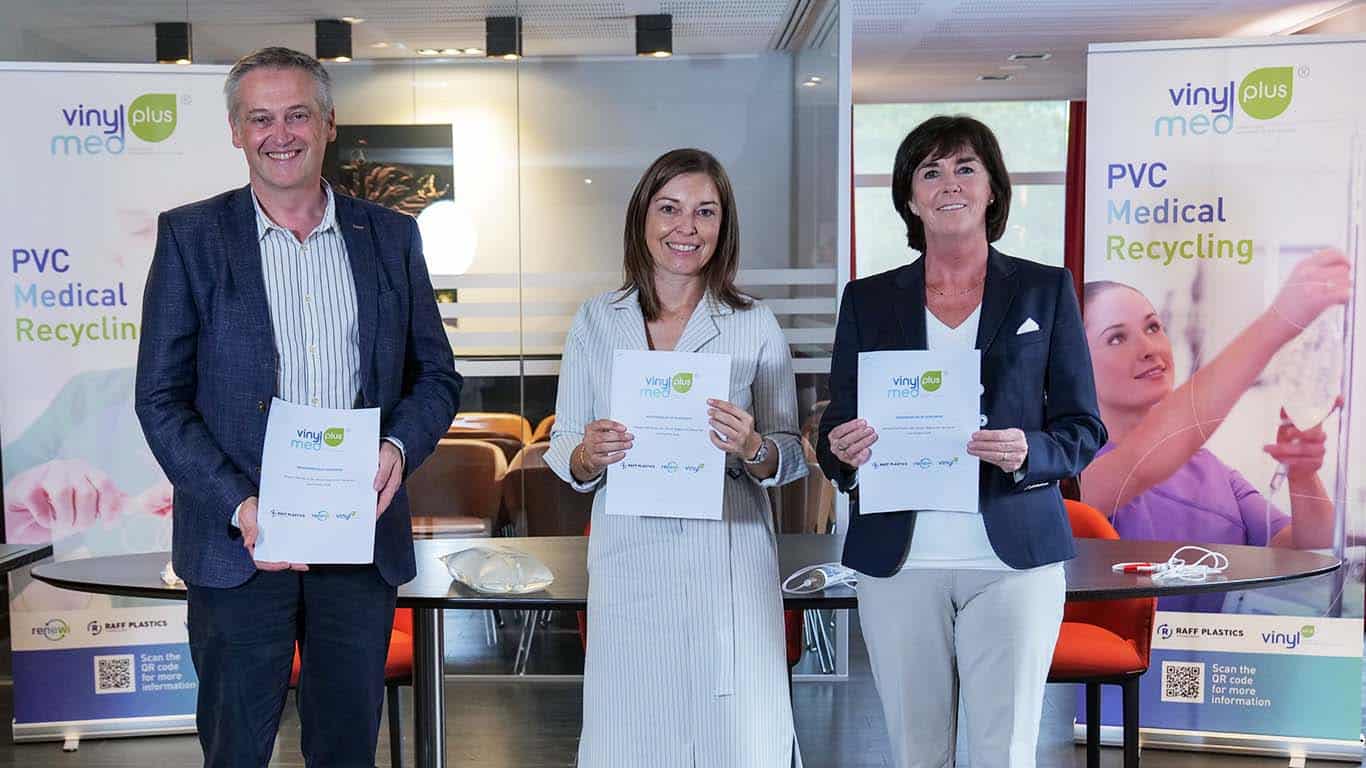
VinylPlus® Med accelerates sustainability in Belgian healthcare
18/10/202117 September marks World Patient Safety Day, a day organised by the World Health Organization to put focus on the fundamental principle of medicine – first, do no harm. Plastics enhance daily life in so many ways, but there is one sector where polymers are really life-saving, and that is healthcare. On World Patient Safety Day, let’s take a look at why plastics are essential to the safety of patients and health workers:

Disposable (and recyclable) plastics-based medical devices reduce cross contamination
With the introduction of single-use, plastics-based devices at a large scale in the 1960s it was possible to eliminate most cross-contamination between patients and also make hospitals safer for healthcare workers. However, disposable does not mean unrecyclable. The majority of single-use medical devices are made from PVC, a safe, versatile and affordable material that can be easily recycled – and that’s being done in several parts of the world.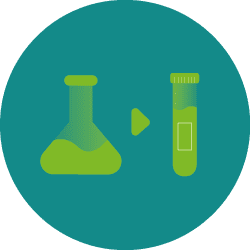
Plastics are robust and help make hospitals safer for patients and health workers
In the past, containers for medicines, blood and other fluids were made of glass. When robust plastic-based containers were introduced in the 1950s, it meant a great leap for patient safety, as well as the safety of healthcare workers.
Hygienic vinyl-based hospital interiors help against hospital-acquired infections
Each year more than 4 million patients in the EU contract infections from hospital exposures and 37,000 unnecessary deaths result due to such infections. Vinyl flooring, ceiling and wall coverings are widespread in hospitals and help to create safe environments, thanks to the polymer’s unique hygienic properties.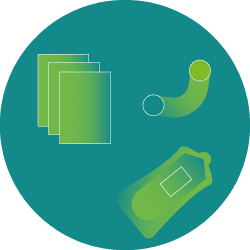
Plastics are extremely versatile and have enabled endless innovation
Due to plastics’ extreme versatility, designers have endless options to create life-saving medical products for diagnostics, treatment and care.

